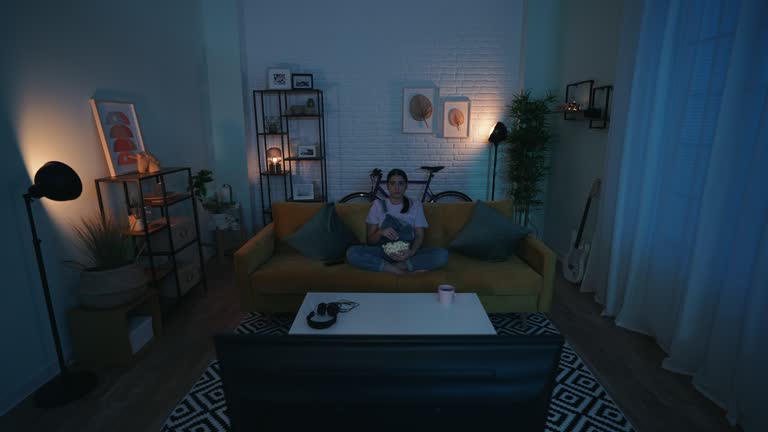
When the apocalypse hits, I’ll probably spend my final hours clicking “Next Episode” and rotting away into oblivion. I have always loved fully immersing myself in a different world; movies and television shows have provided these magical far-away lands for me to escape to. In a constant stress-inducing climate, these fictional worlds are the siren’s song convincing me to watch hours of nonstop content. Binge-watching, the act of watching entertainment for a prolonged period, was catapulted into popularity in the streaming era. However, this is far from a new practice. People have used DVRS, television marathons, and DVD/VHS box sets to watch more episodes of a show in one sitting than it is polite to mention. The constant stream of content is the perfect background noise to drown out the sounds of the world crumbling around me. No need to spiral out about the impending doom when I can jump from fictional world to world with the touch of a button. What is so appealing about this endless content consumption and at what point are these fictional worlds just as dangerous as reality? Temple University associate professor Vinod Venkatraman did a study on the viewer’s choice of binge-watching. “In most instances, viewers are planning to binge-watch ahead of time, and that is one of the first significant contributions of this research because it’s the opposite of what you think of when you hear the word ‘binge,’” Venkatraman told Temple Now. For the most part, the days of waiting a week for the next episode of a show are long gone. Some streaming services still release episodes weekly, but in the post-cable television era, quick and high viewership is crucial for a show to be renewed. Binge-watching is encouraged by companies because it keeps more eyes on the screen. Northwestern Medicine reports that binge-watching isolates viewers, impacts sleep, can cause back problems, depression and anxiety, and a lack of physical activity. Long-term watching might have the potential to damage your health, but there is no doubt that many people enjoy unfettered access to shows. There is no escaping the harsh reality of our world. When my life is spiraling out of control, or the news is constantly overtaken by dooming political actions, I can find comfort in a new show. I know that the joy I find in binge-watching is just a chemical reaction in my brain. Watching multiple episodes of a show full of plot twists and cliffhangers releases dopamine, the “feel-good hormone,” says Penn Medicine. It’s not just the dopamine hit that keeps me glued to the screen. I am in complete control. I choose what to watch, how much to watch, and when to watch. Binge-watching is my favorite and oldest stress reliever; whether it’s through the shows from the 2000s that I wasn’t old enough to watch at the time or the new hits that will make a lasting impact on our culture. I used to throw in DVDs of my favorite shows as a child and dream of being part of those worlds. Now, I get new obsessions through my television or laptop screen, jumping from one universe to the next. I have learned to enjoy and carry these stories with me while remembering that I have a story of my own – and I am in control of it. I know that spending too much time in front of a screen is bad. But sometimes, you need to binge a season or two of a show in one sitting – and that’s okay, too.